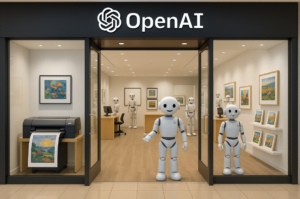CEO of OpenAI Launches Global Initiative in the US, Revealing Collaborations with Visa, Stripe, and Tinder

California Monitoring California: Expansion of World Digital Identity
Key Highlights
- Launch in the US: World, the digital identity platform co-founded by OpenAI CEO Sam Altman, has officially established its services in the United States.
- Orb Deployment: The company plans to deploy 7,500 Orbs by the end of this year to expand its verification network significantly.
- Strategic Partnerships: Collaborations with companies like Razer and Tinder aim to integrate World ID verification into gaming and dating apps, enhancing security against artificial intelligence (AI) bots.
About World
Previously known as Worldcoin, World is focused on creating a global proof-of-humanity network. This initiative is essential in a world increasingly influenced by artificial intelligence advancements. The company announced its US launch at a recent event and emphasized the goal of making identification verification accessible, with the wider aim of facilitating billions of verifications.
Orb Deployment Details
To support its expansion, the company will add 7,500 Orbs, starting in six cities: Atlanta, Austin, Los Angeles, Miami, Nashville, and San Francisco. Additionally, a new manufacturing line will be launched in Texas to produce Orbs for both domestic and international needs.
World also introduced a new portable verification device called Orb Mini, which is expected to ship out in 2026. These devices will enable users to carry their verification tools, creating a gig-economy model where verified users assist others in getting verified, similar to how Uber operates.
Partnerships in Key Industries
Gaming Sector Collaborations
World’s entry into the US market is closely tied to crucial partnerships in various sectors, predominantly gaming. Razer, a leading gaming brand, has announced plans to integrate World ID into its ecosystem, including offering Orbs at retail locations. They are also launching an online-only gaming tournament, “League of Humans,” which is exclusive to verified users. Razer aims to enhance its gaming environments by possibly using its camera technology for better human authentication.
Dating Industry Integration
In the dating landscape, Match Group, the parent organization of Tinder, is set to begin piloting World ID integration in Japan later this year. This initiative will focus on verifying users’ ages and identities, with plans to extend this functionality to other platforms owned by Match Group and different markets.
Technical Upgrades and Future Plans
Enhancements for World App
World is making significant upgrades to its digital platform, introducing new partnerships that enhance functionalities within its World App. Collaborations include Circle, Stripe, and Kalshi, which will enable users to conduct transactions using USDC (a stablecoin), providing smoother payment processes and better fiat on- and off-ramp options.
Moreover, the Kalshi prediction marketplace will be accessible through the app, enabling users to engage in event-driven markets. World is also preparing to launch a World Visa card, which will initially focus on merchant integrations before being rolled out to users.
Worldcoin as an Economic Base
The native token of the network, Worldcoin, is anticipated to serve as the economic backbone of the World protocol. It will act as a fee token within the ecosystem, where applications utilizing World ID will pay fees in Worldcoin on World Chain. This arrangement aims to ensure that device developers and service providers thrive as they contribute to the technology supporting the infrastructure.
In discussions about future user benefits and value distribution, community involvement will play a key role. Decisions regarding the utilization of accrued fees—whether for user rewards, burning, or redistribution—will ultimately rely on collective community consensus over time.
World’s efforts to make digital identity verification ubiquitous and impactful across sectors illustrate its commitment to leveraging technology in fostering security and accessibility in an AI-driven future.





